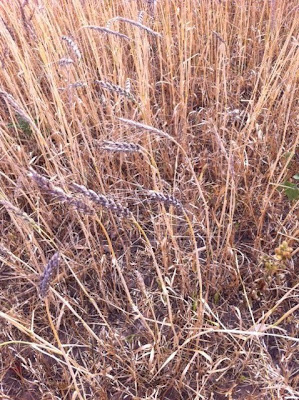Flavourful Saskatoon, February 20, 2017
There are some weighty topics in this week's Flavourful Saskatoon – but first, a couple of local Saskatoon initiatives and an organic pioneer.
Alvin Scheresky
Alvin Scheresky passed away this past week. He pioneered organic farming methods in Saskatchewan founding Daybreak Mill in 1964.
Waste Not yxe
Waste Not yxe is a Facebook group for Saskatoon residents “who are seeking to be conscious about their impact on and relationship with nature, in part through waste reduction.” They post monthly zero waste challenges as well as sharing tips and personal experiences. They also have a website.
Chefs on the Saskatchewan
Shakespeare on the Saskatchewan has announced a new fundraising event featuring local chefs, local products, and lots of flavour.
If You Care About Food . . . Immigration Policy
“Top to bottom, the American food system relies on immigrant labor more than any other cross-section of the economy. According to the 2014 Hunger Report, over 70 percent of farm workers are foreign-born, with an estimated half of those undocumented. The Bureau of Labor Statistics reports that over 10 percent of restaurant workers are immigrants, with a study by Pew Hispanic finding that at least 20 percent of all cooks and 28 percent of all dishwashers are undocumented.”
Migrant workers currently account for 12% of Canada’s agricultural workforce.
Cheap Eats
“We need to rethink the very idea behind cheap eats lists. . . . These lists are part of a broader restaurant culture that devalues labor and ignores the consequences of that devaluation. And these lists make it difficult for immigrant businesses — and I include my own here — to break out of the trope that equates communities of color with cheap food and cheap labor. I don't see treasure in cheap eats. Restaurants where workers are paid fairly and the food respected? That's the true treasure.”
Can Wine Be Radical?
“Growers who champion a return to more sustainable, pre-industrial farming methods – ergo organics and its more philosophical extreme, biodynamics – are performing a radical act. They dare to question that huge and increasing body of knowledge, encouraged and partly generated by the agrochemical industry, that the only efficient, sensible way to farm crops and produce food or wine is by the use of chemical enhancers, synthetic products and industrial processes.”
And, on a lighter note, two articles that forced me to re-examine my pre-conceptions.
How Indian is your Turmeric Latte?
India is an enormous country of staggering diversity. The author looks at just one dish – turmeric latte – that is gaining popularity in North America to explore some of India’s cultural and culinary differences.
“Then, as now, the Bengali foods I grew up eating did not find themselves plastered across menus, let alone most of the writing that exists about Indian food. That does not make them any less Indian. I’m just waiting for the day that Kashmiri pink chai will explode, a more savory, indelicate version of the chai Americans have come to know through South Indian restaurants. . . .”
How Restaurants Choose their Tableware
The next time you eat out, take a close look at the plates and cutlery. “Some operators are all about the food, and for others, it’s about the service … But the tabletop plays to both of those. It’s the connection, where the servers met the food. It’s the meeting point between those two, and it’s very important.”
Flavourful Saskatoon is a weekly Monday feature. I also post articles about food that is good, clean and fair; travel; and books. You may also enjoy EcoFriendly Sask profiling Saskatchewan environmental initiatives and events.
You can follow Wanderlust and Words on Facebook, Twitter, or by email (top right corner).








Comments